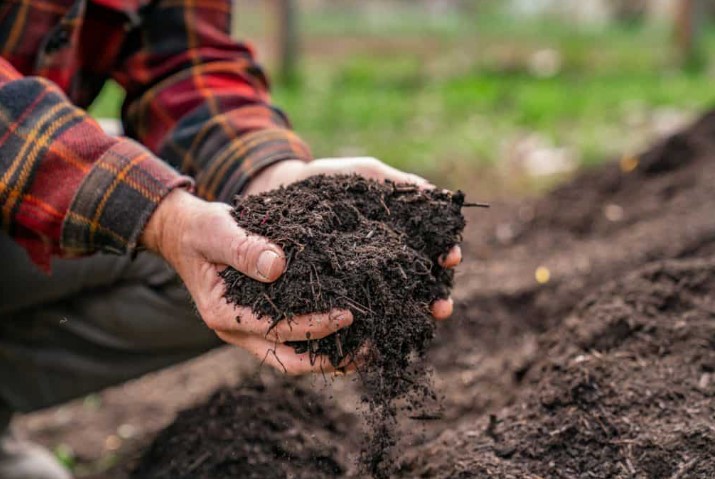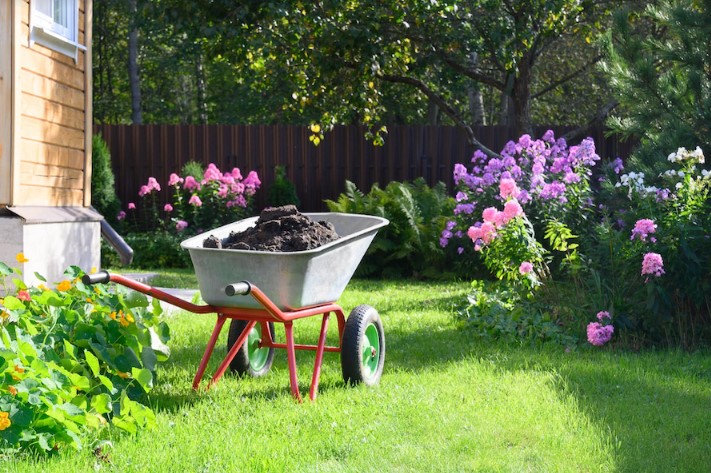Introduction
Welcome to the world of garden compost, where nature’s recycling system meets gardening excellence. In this comprehensive guide, we’ll delve into the transformative power of compost and how it can elevate your garden to new heights.
Understanding Compost
Compost is often referred to as “black gold” for gardeners, and for good reason. It’s a nutrient-rich soil amendment that results from the decomposition of organic matter. This process yields a dark, crumbly substance that works wonders for soil health and plant growth.
The Components of Compost
Compost is made up of a variety of organic materials, including:
- Green Matter: This includes items such as grass clippings, vegetable scraps, and coffee grounds, which are rich in nitrogen.
- Brown Matter: Items like dried leaves, straw, and cardboard provide carbon, helping to balance the compost pile.
- Microorganisms: Bacteria, fungi, and other microscopic organisms are essential for breaking down organic matter into compost.
Benefits of Using Compost
Improved Soil Structure
One of the primary benefits of compost is its ability to enhance soil structure. By adding compost to your garden, you’ll improve soil aeration and drainage, creating an optimal environment for plant roots to thrive.
Nutrient-Rich Soil
Compost is teeming with essential nutrients, including nitrogen, phosphorus, and potassium. These nutrients are released slowly over time, providing a steady supply of food for your plants throughout the growing season.
Enhanced Plant Growth
Plants grown in compost-enriched soil tend to be healthier and more vigorous. They’re better equipped to resist pests and diseases, resulting in higher yields and a more bountiful harvest.
Environmental Benefits
Using compost in your garden isn’t just good for your plants—it’s good for the planet too. Composting helps reduce waste by diverting organic materials from landfills, where they would otherwise contribute to greenhouse gas emissions.
How to Make Compost
Choosing a Compost Bin
The first step in composting is selecting the right compost bin for your needs. Options range from simple DIY bins made from recycled materials to more sophisticated tumblers and vermiculture systems.
Layering Materials
To create high-quality compost, it’s essential to layer your materials properly. Aim for a balance of green and brown matter, alternating between wet and dry ingredients to promote decomposition.
Turning the Pile
Regularly turning your compost pile helps aerate the materials and speed up the decomposition process. Aim to turn the pile every one to two weeks, or whenever it starts to heat up significantly.
Patience and Persistence
Composting is a process that requires time and patience. It can take anywhere from a few weeks to several months for your compost to fully mature, depending on factors such as temperature, moisture levels, and the size of your pile.
Tips for Using Compost in the Garden
Mixing Compost into Soil
When incorporating compost into your garden beds, aim for a ratio of about 1 part compost to 2 parts soil. Mix thoroughly to ensure an even distribution of nutrients throughout the soil.
Top-Dressing Plants
For existing plants, consider top-dressing with compost by spreading a layer of compost around the base of the plant. This will provide a slow-release source of nutrients and help retain moisture in the soil.
Starting Seeds
Compost is an excellent medium for starting seeds. Create a compost-based seed-starting mix by combining equal parts compost and perlite or vermiculite for optimal drainage.
Conclusion
In conclusion, compost is a gardener’s best friend, offering a wealth of benefits for both plants and the environment. By harnessing the power of compost, you can enrich your soil, boost plant growth, and reduce waste—all while enjoying a more vibrant and productive garden.

